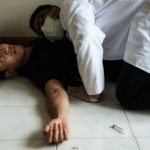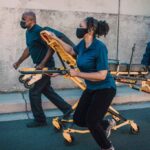Carbamazepine Overdose: Why it Happens, Signs and Symptoms

What Is Carbamazepine?
Carbamazepine is an antipsychotic medication in a class of medications called anticonvulsants. It works by reducing abnormal electrical activity in the brain. It is approved for the treatment of bipolar 1 disorder (also known as manic depression) as well as for epilepsy and trigeminal neuralgia. Bipolar disorder involves episodes of depression and/or mania.
Symptoms of depression include:
• Depressed mood — feeling sad, empty, or tearful
• Feeling worthless, guilty, hopeless, or helpless
• Loss of interest or pleasure in normal activities
• Sleep and eat more or less than usual (for most people it is less)
• Low energy, trouble concentrating, or thoughts of death (suicidal thinking)
• Psychomotor agitation (‘nervous energy’)
• Psychomotor retardation (feeling like you are moving in slow motion)
Symptoms of mania include:
• Feeling irritable or “high”
• Having increased self-esteem
• Feeling like you don’t need to sleep
• Feeling the need to continue to talk
• Feeling like your thoughts are too quick (racing thoughts)
• Feeling distracted
• Getting involved in activities that are risky or could have bad consequences (e.g., excessive spending)
Carbamazepine may also be helpful when prescribed “off-label” for behavioral or psychological symptoms of dementia. “Off-label” means that it hasn’t been approved by the Food and Drug Administration for this condition. Your mental health provider should justify his or her thinking in recommending an “off-label” treatment. They should be clear about the limits of the research around that medication and if there are any other options.
What is carbamazepine overdose?
Carbamazepine overdose involves taking too much carbamazepine. Drug overdoses may be accidental or intentional. If you’ve taken more than the recommended amount of carbamazepine or enough to have a harmful effect on your body’s functions, you have overdosed.
An overdose can lead to serious medical complications, including death. The severity of a drug overdose depends on the drug, the amount taken, and the physical and medical history of the person who overdosed.
Risk factors for carbamazepine overdose
Several factors can increase the risk of a carbamazepine overdose. These include:
Improper storage of drugs: Improperly stored drugs can be easy targets for small children, who are curious and tend to put things in their mouths. It’s easy for children to get into and accidentally overdose on drugs that aren’t properly sealed and stored away from them.
Not knowing or following dosage instructions: Even adults can overdose on medications like carbamazepine if they don’t follow the instructions. Accidentally taking too much or taking your doses sooner than directed can easily lead to an overdose of a drug that is otherwise safe for you.
History of misuse or addiction: Intentionally misusing prescription drugs or using illicit drugs can put you at risk of carbamazepine overdose. This risk increases if you use multiple drugs, mix different drugs, or use them with alcohol.
History of mental disorders: Mental disorders can also be risk factors for a drug overdose. Depression and suicidal thoughts can be overdose triggers. This is especially true if these symptoms are not being treated.
What are the signs and symptoms of carbamazepine overdose?
According to studies, the most common signs and symptoms of carbamazepine overdose include:
- Abnormal movements
- Difficulty urinating
- Dizziness
- Drowsiness
- Irregular or slowed breathing
- Muscle twitching
- Nausea
- Rapid or pounding heartbeat
- Restlessness
- Seizures
- Shaking of a part of your body that you cannot control
- Unconsciousness
- Unsteadiness
- Vision changes
- Vomiting
In fatal cases, coma, epileptic seizures, respiratory depression, and respiratory arrest are ranked highest.





